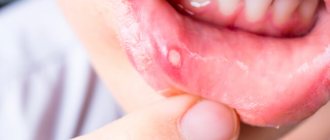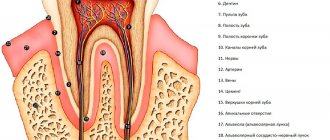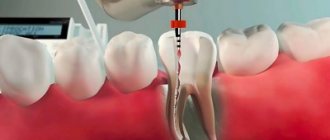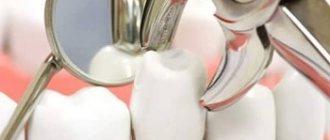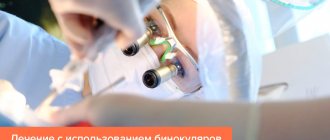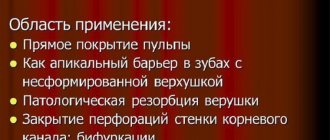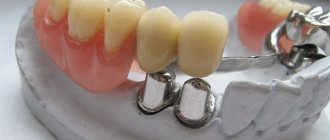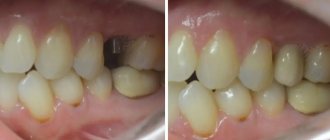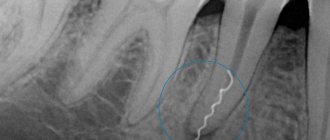Pensioners, labor veterans, disabled people and WWII participants have the right to preferential dental prosthetics in Russia. These categories of citizens have the opportunity to install prostheses for free or reimburse the funds spent. Preferential prosthetics are provided on a first-come, first-served basis and only in municipal dental clinics.
Preferential prosthetics for pensioners in Moscow is real. In Moscow and the Moscow region there is a special queue for non-working pensioners who want to get prostheses for free. To do this, the pensioner needs to visit the social protection center at the place of registration and clarify all the information.
The Dento-Comfort clinic can offer pensioners inexpensive dental prosthetics of adequate quality. Prostheses made in our clinic have a long service life. We know what older people need - comfort when wearing dentures and the ability to chew solid food. We have a flexible discount system, follow our promotions and news. Pensioners can easily afford to have prostheses installed in our clinic.
Call us or Leave a request
Who benefits from the installation of free dentures?
In accordance with the Law “On Social Protection of Disabled Persons in the Russian Federation” (Federal Law No. 181-FZ of November 24, 1995), the category of beneficiaries applying for free dental prosthetics includes:
- War veterans and disabled people;
- Veterans of Labor;
- Disabled people of groups 1, 2, 3 (including children);
- Non-working pensioners.
Legal regulation of the issue of preferential dental care for disabled people in Russia is carried out by the following regulations:
- Law “On Social Protection of Disabled Persons in the Russian Federation” (Federal Law No. 181-FZ of November 24, 1995);
- Law “On State Social Assistance” (Federal Law No. 178-FZ of July 17, 1999);
- Decree of the Government of the Russian Federation No. 694 of July 10, 1995 “On the sale of prosthetic and orthopedic products.”
The legislative framework also includes a number of regional documents that determine the procedure for providing assistance to citizens with disabilities in the constituent entities of the Russian Federation, which means that regional authorities can resolve this issue directly on the ground.
Preferential dental prosthetics for disabled people in Russia are provided in the form of the following services:
- Free dental procedures;
- Discounts on payment for doctor’s products and services;
- Financial compensation after the procedure (tax deduction based on supporting documents).
In accordance with regulatory rules, preferential medical services are provided to certain categories of citizens on a first-come, first-served basis. A citizen with a disability can receive social preferences based on a written application to the department for social protection of the population. The right to benefits is confirmed by a package of special documents.
Which dental clinics can people with disabilities go to?
Until recently, citizens could request dental prosthetics only by referral to state and municipal medical institutions in the locality where they were registered.
Now some private clinics are also included in the state program to support disabled people. However, unlike government agencies, such institutions can provide benefits to vulnerable groups of citizens solely on the basis of an agreement with the local municipality.
What types of removable and fixed dental prosthetics do we offer for pensioners?
Removable dentures are an excellent solution to the problem of tooth loss. Older people, unfortunately, have difficulty eating due to the loss of most of their teeth. Removable dentures in this case are an excellent way out of the situation.
Removable dentures can be complete or partial, for 1-2 teeth or for the entire jaw. By type of production there are:
- Lamellar;
- Arc;
- Nylon;
- Polyurethane;
- Clasp;
They have one drawback - the need for hygiene, regular removal and visits to the doctor. Plate and arc prostheses are the most budget-friendly option for prostheses for pensioners. Nylon and polyurethane prostheses belong to the middle price category. Partial dentures can cost a pensioner 5-10 thousand rubles, and complete ones 10-20 thousand. Clasp dentures are a more expensive option. The cost of a clasp prosthesis varies between 40-50 thousand rubles, which in principle is inexpensive, since for this money they will make you a prosthesis for all the teeth of one jaw. The advantage of clasp dentures is that they evenly distribute the load between existing teeth and gum tissue.
The Dento-Comfort Clinic is a private dentistry with prices that are truly affordable for most consumers. A simple tooth extraction costs about 400 rubles.
What dental services are provided free of charge?
As part of the implementation of the service of preferential dental prosthetics on a free basis, a disabled person will be provided with a number of procedures:
- Examination by a specialist and his consultation;
- Treatment of diseased teeth;
- Elimination of diseases of the mucous membrane;
- Cleaning teeth from stone;
- Removal of caries and installation of fillings;
- Installation of prosthetic products.
The patient should take into account the fact that, using funds from the state treasury, he will be provided with dentures made from the most simple and inexpensive materials.
Procedure for obtaining benefits for dental services
In accordance with Law No. 178, participation in the preferential prosthetics program is implemented in a step-by-step algorithm of actions:
- Obtaining a certificate from the attending physician confirming the need for intervention;
- Collection of documentation necessary to participate in the state program;
- Writing an application for inclusion in the preferential prosthetics program and submitting it to the social protection department;
- Waiting for the results of the application review. The approximate period for consideration of the request is 30 days, after which the applicant will be notified in writing.
If a positive decision is made, the program participant is included in the waiting list. Dental services are provided on a first-come, first-served basis.
Priority in receiving medical care is influenced by factors such as:
- Date of the application;
- Disability group;
- Degree of dental problems;
- General state of human health.
After waiting his turn, the patient receives a coupon indicating the timing of the service and the name of the clinic where it will be provided.
Where to apply for government support
Issues of providing benefits for medical services for citizens with disabilities lie within the competence of territorial bodies of social protection of the population. Based on a written request from a disabled person, supported by documentary evidence, the social welfare department in the municipality of the city (village) makes a decision to include the candidate in the state program.
How do the regions resolve this issue?
Regional authorities have the right to independently determine the procedure for providing dental care to disabled people of groups 1-3. Funds for the implementation of the program of preferential prosthetics for the population are allocated from the regional treasury.
Locally, separate legislative acts may be adopted that adjust the list of beneficiaries applying for free dental prosthetics. Accordingly, the mechanism of the procedure for issuing a coupon and the parameters of the benefit in a particular locality may have significant differences.
What documents should the beneficiary have?
A written application from a citizen is a documentary basis for receiving medical benefits. The application can be pre-written at home, or drawn up under the guidance of an authorized inspector of the social security department of the local municipality.
The package of documents supporting the written appeal includes:
What documents are required to collect for preferential prosthetics?
To take advantage of state support when installing dentures, you should:
- obtain a certificate from the dentist regarding the presence of indications for prosthetics;
- prepare copies of a passport, birth certificate (for a disabled child), compulsory medical insurance policy, certificate of family composition and income;
- prepare an application according to the established template;
- submit all prepared documents to the social protection department.
Next, you need to wait for the application to be reviewed and receive the results. The period for issuing the conclusion is 30 days.
If the issue is resolved positively, the applicant receives written notification of the opportunity to exercise the right to receive budget funds for dental prosthetics. It is worth considering that the validity period of the permit to receive benefits is limited and is established by each region separately. As a rule, such a document is valid from two weeks to six months.
If your health condition does not allow you to wait in line
A citizen with a disability has the right to priority in receiving benefits if his health condition does not allow him to wait his turn:
- The social security authorities are the first to consider applications from citizens with cancer, who have undergone serious injuries or operations on the gastrointestinal tract;
- If a patient has been found to have a tumor in the oral cavity, in the digestive organs, or in the hematopoietic organs, he will be referred to the procedure for preferential dental prosthetics out of turn;
- A person has a priority right to receive dental care even if he has been deprived of teeth due to injury.
Russian disabled people of groups 1, 2 and 3 can take advantage of the right to preferential dental prosthetics by contacting the social protection authorities and the population at their place of registration. After submitting an application, a person is included in the queue of citizens applying for free (preferential) dental care.
The referral coupon for the implementation of the service is valid for a limited period of time. A disabled person will be able to receive dental care at a specific state (municipal) medical institution specified in the document.
Dental treatment for patients with disabilities
Dental treatment of children and adults with disabilities in the presence of diseases such as cerebral palsy, autism, Down syndrome, epilepsy and other diseases, usually genetic, associated with disorders of the human central nervous system (CNS), requires a special approach. Now such treatment is performed in CELT under general anesthesia.
Until recently, a few years ago, the possibilities for carrying out treatment and complex diagnostic tests for people with disabilities were very limited. Dental treatment caused especially big problems: the need for it arises often, but it is almost impossible for such a person to remain motionless for 30-40 minutes. At the same time, dental pathologies occur in these patients on average much more often than in ordinary people, which is due to a whole complex of unfavorable factors at different stages of a person’s life: poor oral hygiene, injuries and uncoordinated movements of the jaw, delays in the formation of the dentition, impaired mineralization teeth and many others. This not very widely known, but serious problem greatly affected the health and quality of life of both the patients themselves and their loved ones.
Not all dental clinics, even Moscow ones, are ready to accept such patients for treatment. Parents of disabled children are often in a difficult situation when searching for a dentist. Fortunately, medicine does not stand still, and now, through the efforts of doctors of various specialties, using technological capabilities, it is possible to help these patients undergo treatment under general anesthesia (under general anesthesia) in a well-equipped medical center such as CELT. Our dentists treat children and adults with disabilities in the same way they treat any other patient.
Electrocardiogram (ECG)
- Cost: 1,300 rub.
- Duration: 15 minutes
- Hospitalization: does not require hospitalization
More details
Giving anesthesia to such patients is always difficult, but CELT has all the possibilities for this, since the clinic has a full-fledged anesthesiology and intensive care department with the latest equipment and high-level specialists. To monitor the functioning of vital organs throughout dental treatment, advanced monitoring is used, which includes blood pressure, electrocardiograms, body temperature, blood gases and others. An experienced anesthesiologist at the CELT clinic is constantly with the patient during treatment. The use of anesthesia allows for a large amount of dental treatment to be performed at one time.
Today, one of the most modern and safe drugs for anesthesia is used - Sevoran gas . It is suitable for both adults and children with disabilities. This is a reliable and non-toxic drug that enters the body through the respiratory tract during inhalation anesthesia. After anesthesia, our patients are in the anesthesiology and intensive care unit under the supervision of specialists. And only if the anesthesiologist, based on the patient’s condition, is convinced that the patient has fully recovered, discharge occurs. We have separate anesthesiologists working with children. It is very important for us to be completely confident that the treatment is completed and the patient’s life is not in danger.
Many parents are concerned about how to come to the clinic for the first time, since they do not know in advance how a child with developmental delays or autism will react to doctors. You can call the CELT Dentistry Department in advance, talk to the doctor by phone and ask all your questions.
The cost of the entire treatment and anesthesia can be accurately calculated in consultation with the treating dentist after specifying the volume and duration of treatment. We can guarantee safety and comfort when treating special patients.
Our doctors work according to international and Russian standards. Another great advantage we have for patients with disabilities is that they can undergo all the necessary diagnostics without leaving the confines of one clinic, since CELT has its own clinical and biochemical laboratory, a radiation diagnostics department, and other instrumental diagnostic methods. Therefore, in order to plan treatment optimally, we do not need to send the patient to other institutions. After consultation with the dentist and anesthesiologist, we agree on a time and date and invite you for treatment.
At the CELT Dentistry Department there is an approach to every patient, and we will always try to help you. We hope that everyone who comes to the clinic will find their doctor!
